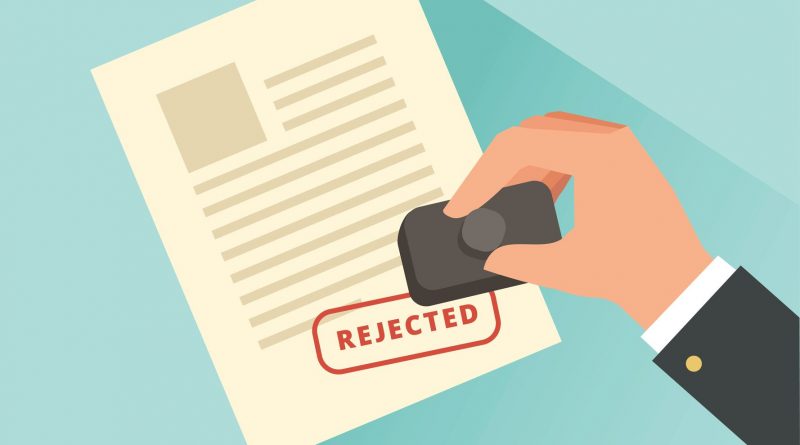Why Are Grant Proposals Rejected?
When your grant proposal is rejected, it can feel deflating and leave you wondering where you went wrong. But don’t feel too bad. On average, only one in seven grant proposals are awarded.
A grant proposal can be rejected for a variety of reasons, some of which may have nothing to do with you. For example, though your grant proposal may be eligible, the funding source may have run out of award funding. Below, GrantWatch has provided a list of 5 of the most frequent reasons why a funding source rejects a grant proposal:
- The applicant doesn’t meet the eligibility criteria.
- The proposal does not align with the funder’s donation parameters and interests.
- The applicant wasn’t ‘grant-ready’ and missing vital information.
- The applicant didn’t follow the application guidelines and requirements.
- Though potentially eligible, the funding source received other proposals containing priorities that were higher on their list.
If your grant proposal is rejected, it could be due to any of these reasons, or even one that is not listed above. But once you’ve answered the questions below, you should have a good idea about whether there’s something you can improve on.
1. Were You Eligible to Apply?
Sometimes, it’s tempting to think that the funder might ‘bend’ their eligibility requirements after they read about the ‘great work’ you’ve achieved. This is not the case. In addition, some grant opportunities require an invitation to apply, so don’t waste time sending unsolicited proposals.
2. Did You Align with the Funder’s Interests?
When it comes to grants, you’re going to experience a lot of disappointment if you go in with the mindset of “This is what I need.” Instead, you need to show how your project aligns with the purpose of the grant to which you’re applying. The same goes for submitting a generic proposal. You should tailor your proposal to best meet the unique set of requirements and expectations of the funding source. Funders don’t give grants to fund your company. Rather, it looks for a company to conduct projects for the greater good on its behalf.
3. Were You Grant-Ready?
Remember: Funders always prefer proof over your written good intentions. Sometimes, the best-written grant proposal is rejected because the funder had serious questions about the organization’s capacity to carry out the scope of the work described in the proposal. Avoid giving rough estimates or vague amounts. Funders usually ask for a variety of documentation, including previous tax returns and financial audit records, so make sure these records are up-to-date and in compliance.
4. Was Your Proposal Compliant With the Funder’s Guidelines?
A grant proposal has two parts; the content and the format. Both parts must adhere to the funder’s guidelines to be compliant. Don’t skip questions or “copy and paste” your responses. In addition, incorrect formatting of your proposal will be a sure sign to the funder that you haven’t followed their submission guidelines. This is why having a checklist to cross reference can come in handy to help ensure that you meet all of the funder’s guidelines.
5. Did You Apply Early?
As mentioned earlier, sometimes it just comes down to luck. As much as a funding source would love to give funds to every applicant, they only have a set amount to award. If you can help it, don’t leave submitting your grant proposal until the last minute. When you submit your application could be the “make or break” for winning a grant. But often, it really comes down to luck as well as how many other quality grant proposals the funder receives.
Next Steps After Rejection
So, if your grant proposal was rejected, don’t despair! Don’t be afraid to reach out to the funding source for feedback. This can even help you forge a relationship with the funding source moving forward. The funding source may provide valuable feedback and ask you to resubmit in the future! If you continue to experience rejection, you may want to consider hiring a professional grant writer to review your proposal and give you important feedback to help you succeed in the future.
Looking for grants? With close to 8,000 grants currently available, GrantWatch.com is the leading grant listing directory. Upgrade to a MemberPlus+ account to view the full grant details, including the eligibility criteria and application information. For more information, you can also visit the GrantWatch FAQ page, and to see the great value with the top 20 GrantWatch features, click here.

